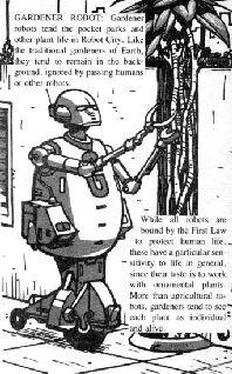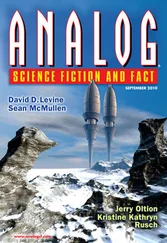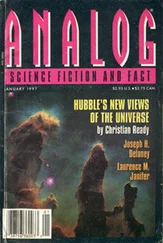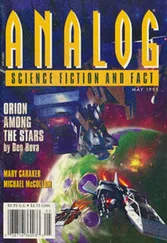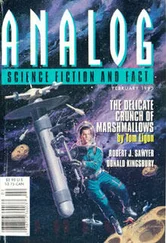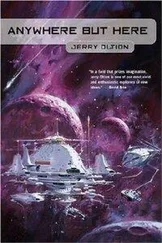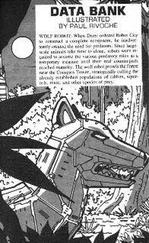Jerry Oltion - Alliance
Здесь есть возможность читать онлайн «Jerry Oltion - Alliance» весь текст электронной книги совершенно бесплатно (целиком полную версию без сокращений). В некоторых случаях можно слушать аудио, скачать через торрент в формате fb2 и присутствует краткое содержание. Год выпуска: 1990, ISBN: 1990, Издательство: Ace Books, Жанр: Фантастика и фэнтези, на английском языке. Описание произведения, (предисловие) а так же отзывы посетителей доступны на портале библиотеки ЛибКат.
- Название:Alliance
- Автор:
- Издательство:Ace Books
- Жанр:
- Год:1990
- ISBN:ISBN: 0-441-73130-9
- Рейтинг книги:3 / 5. Голосов: 1
-
Избранное:Добавить в избранное
- Отзывы:
-
Ваша оценка:
- 60
- 1
- 2
- 3
- 4
- 5
Alliance: краткое содержание, описание и аннотация
Предлагаем к чтению аннотацию, описание, краткое содержание или предисловие (зависит от того, что написал сам автор книги «Alliance»). Если вы не нашли необходимую информацию о книге — напишите в комментариях, мы постараемся отыскать её.
Alliance — читать онлайн бесплатно полную книгу (весь текст) целиком
Ниже представлен текст книги, разбитый по страницам. Система сохранения места последней прочитанной страницы, позволяет с удобством читать онлайн бесплатно книгу «Alliance», без необходимости каждый раз заново искать на чём Вы остановились. Поставьте закладку, и сможете в любой момент перейти на страницу, на которой закончили чтение.
Интервал:
Закладка:
He shook his head and sat up. “Later. Is anything else wrong?”
“Your electrolytes are unbalanced as well.” The robot pushed a sequence of buttons on what had to be an automat for medicines, and took from the hopper a liquid-filled glass like the one Avery had just downed. Derec took it and followed Avery’s example, bolting it down without tasting.
He looked over to see how the robots were doing with Ariel and Wolruf. At first they had not intended to examine Wolruf, since the original programming to which they had been returned did not include her in their definition of human, but Derec had sent an order to the central computer that all city robots were to consider her human as well, with the result that she, too, had a medical robot puzzling over her monitors, wondering what constituted normal in an alien of her particular biology.
Another robot hovered nervously about Ariel.
Derec felt a sharp stab of worry, but it vanished almost immediately. He laughed. “What’s the matter, didn’t she tell you she was pregnant?”
“I ascertained that,” the robot said. “However…” It hesitated, looking to Ariel and back to Derec as if wondering which of them to address. At last it decided upon Ariel. “However, there seems to be a problem with the embryo.”
“What!” Derec rushed to Ariel’s side, grasped her hand, and looked up at the monitor over her head. It showed a curved, wrinkled object with a dark streak along one side and tiny projections emerging from the other. It had to be the embryo, but to Derec it just looked like a blob on a screen.
“What problem?” Ariel asked the robot.
“It is developing abnormally. From its appearance it seems to have been developing abnormally for some time, so I do not believe it to be an effect of your recent experience, but rather an inherent genetic problem.”
“How can that be?” Derec demanded. Genetic defects were practically unheard of in Aurorans. He and Ariel both came from pure Auroran stock, as had every person born on the planet since the original colonization from Earth centuries before-colonization by the genetically cleanest the planet had to offer. There hadn’t been many colonists; it was a small gene pool, but it had been selected carefully. And it had been guarded carefully ever since. There were no genetic defects on Aurora.
“I do not know,” the robot replied. “Yet something is interfering with its development, and by all indications has been since the moment of conception.”
The robot who had been examining Derec moved over to stand across the examination table from Ariel’s robot. “Set your target density to 225, high resolution, high magnification.”
The other robot obeyed, and moments later the screen above Ariel’s head showed a vague shadow of the previous image, much larger but nearly washed out. The target density was set too high for the embryo to show clearly, but scattered all through the shadowy image were tiny, sharply bounded granules that could only be chemfets.
“They are the same objects I found in Derec’s body,” the robot confirmed. It turned to him and said, “You said they were normal.”
“Normal in me, yes, but not in Ariel!”
“That is undoubtedly so,” Ariel’s robot said. “Their presence is very likely the reason for the embryo’s abnormal development.”
“Abnormal how?” Ariel asked softly. “How bad is it?”
The robot pressed a key on the monitor and the picture changed back to the previous one. He pulled the monitor around on its swivel arm so Ariel could see it and said, pointing, “This line is called the neural groove. This is where the notochord and the dorsal nerve cord develop. You can see that the two folds comprising the groove are already closing, yet there is no neural tissue within it. Also, we should be seeing somites, the segmental blocks from which muscle and connective tissue would ultimately form, but we do not. Taken together, I am afraid this means that the baby will be severely malformed both mentally and physically, if it lives at all.”
Ariel raised her voice, as if arguing could make it not so. “How can you be so sure? You’ve never even seen a human before, much less an embryo.”
“The information is all in the central computer library.”
Derec could hardly remain standing. His chemfets had destroyed their baby! He closed his eyes to keep from looking at the monitor, but the vision still haunted him.
You! he sent, directing his thoughts inward. He had communicated with the nebulous robot entity within him once before, when he had taken control of it, and though he had never again reestablished direct contact, he railed at it anyway.
You destroyed my baby! It wasn ’ t enough that you invaded my body, but you had to invade my child ’ s as well! You ’ ve killed it! You ’ ve killed a human being!
He didn’t expect a reaction, but once again the tiny robot cells surprised him. His body suddenly stiffened as if jolted by electricity, and he lost the sensation in his arms and legs. His eyes snapped open, but he had only time enough to glance at Ariel and whisper, “Oh oh,” before he lost them and the rest of his body as well.
The dreams were unpleasant. He knew them for dreams, but even so he had no control over them. It felt as if they were controlling him instead, but not with any purpose. It was as if he were a puppet in a stage play in which each member of the audience had a control unit, but none knew how the play was to proceed. He kept receiving conflicting signals, but these were not the normal signals a puppet received. These were commands to his heart, directing it to beat, to his lungs and diaphragm, directing them to breathe, to all his major organs and glands, but each one received dozens of commands at once and the combination reduced them to chaos.
Derec tried sending commands of his own, but he had no connections to send them through. He was isolated, a brain and nothing more. A point of view.
He had memory, at least, but when he began to explore it he found it to be an abandoned city. The buildings that should have held thousands of inhabitants were instead barren and cold. Here and there a light burned in a window, but when Derec would investigate it, he invariably found only a hint of human occupation; the scraps of a meal left behind or the faint scent of perfume in the air.
Through one window he could see a lush jungle growing, but he could find no door to the building containing it. He could only stand outside and watch the motions of the gardeners as they tended their charges. One gardener, a silver reflection of a godly being, glowing so brightly that it hurt Derec’s eyes to look upon him, plucked a leaf from one of the trees, blew into its stem, and the leaf took on the shape of a bird. The gardener released it and the bird flew away to join a whole flock of its fellows on a branch of another tree, but to Derec’s horror, he saw an insidious mold that had been waiting on the branch begin to grow up over the birds’ feet. They flapped and struggled to get away, but the mold grew over them until it covered them completely, then slowly dissolved them to nothing. The gardener looked toward Derec and shrugged as if in apology. He plucked another leaf, blew into it, and this time it became a baby. The gardener set it on the same branch that had eaten the birds.
Derec screamed.
He awoke in a hospital bed. That was no surprise. What surprised him was how good he felt. He felt rested and alert, not groggy and full of pain the way most people who awaken in hospital beds feel. He remembered that he had had a troubling dream, but it was already fading. He sat up and looked around him and received his second surprise of the day.
Читать дальшеИнтервал:
Закладка:
Похожие книги на «Alliance»
Представляем Вашему вниманию похожие книги на «Alliance» списком для выбора. Мы отобрали схожую по названию и смыслу литературу в надежде предоставить читателям больше вариантов отыскать новые, интересные, ещё непрочитанные произведения.
Обсуждение, отзывы о книге «Alliance» и просто собственные мнения читателей. Оставьте ваши комментарии, напишите, что Вы думаете о произведении, его смысле или главных героях. Укажите что конкретно понравилось, а что нет, и почему Вы так считаете.
